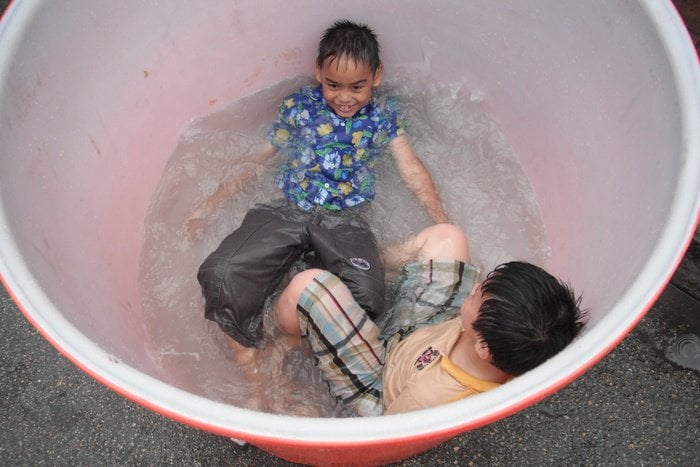Opinion: Practice Songkran Phuketiquette

PHUKET: As the Songkran holiday nears, we are continually reminded of the dangers on the road during the Thai New Year festival. Drivers fight traffic on wet, slippery roads while simultaneously getting pummelled in the face with ice water.
Officials have made it clear that this year they are determined to make the holiday more about tradition and less about what has become known as one of the most epic water fights in the world.
Rules implemented include the ban of sexy outfits, high-pressured water guns, water-fight trucks, the mixing of foam or ice with play water and more.
With all of this talk of new regulations to bring back more of what is traditional, I feel that they missed a huge opportunity to actually explain what a traditional Songkran entails.
I decided to do a little research and surprisingly found it difficult to find consistent information. However, there were a few key points that were repeated online, and then reiterated by my local friends.
The word Songkran actually referes to the changing position of the sun from Aries to Taurus, and the holiday more or less correlates with the changing of seasons on Earth from winter to spring. New life equals new year.
People generally start off by cleaning their homes to symbolically rid them of bad luck from the previous year and welcome the new one in with a clean start.
The water that we have all come to love and loathe, traditionally represents cleansing and renewal. It is poured gently onto Buddha images in homes and in temples. If you choose to participate in this, be sure not to pour water onto the head, as it is generally poured on the torso.
Water is also traditionally used to show signs of respect and blessings toward your elders and family members. The water is usually poured gently over the shoulders or on the hands, as good wishes and blessings are uttered for the new year.
Another tradition that I have rarely heard mentioned is the building of small sand pagodas at local temples. It is believed that sand is taken from the temples on the soles of people’s shoes after they have come to make merit. The sand is then returned on the New Year and used to build miniature pagodas around the temple.
The Songkran water play is usually reserved for the younger generation after their religious and family traditions have finished for the day – but that doesn’t mean you won’t see everyone joining in the fun.
So as this Songkran festival gets underway, remember the tradition and values that people revere during this special time. Think twice before you throw a bucket of ice water onto an older person walking down the street, maybe opt to pour water onto their hands and say, ‘Sawadee Pi Mai!’ (happy new year) with a great big smile. But most of all, have fun, be safe, be respectful and have a happy New Year!
— Debbie Adams
Latest Thailand News
Follow The Thaiger on Google News:


























